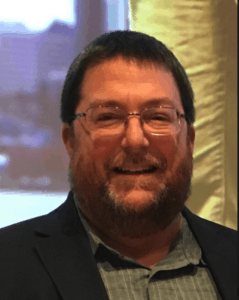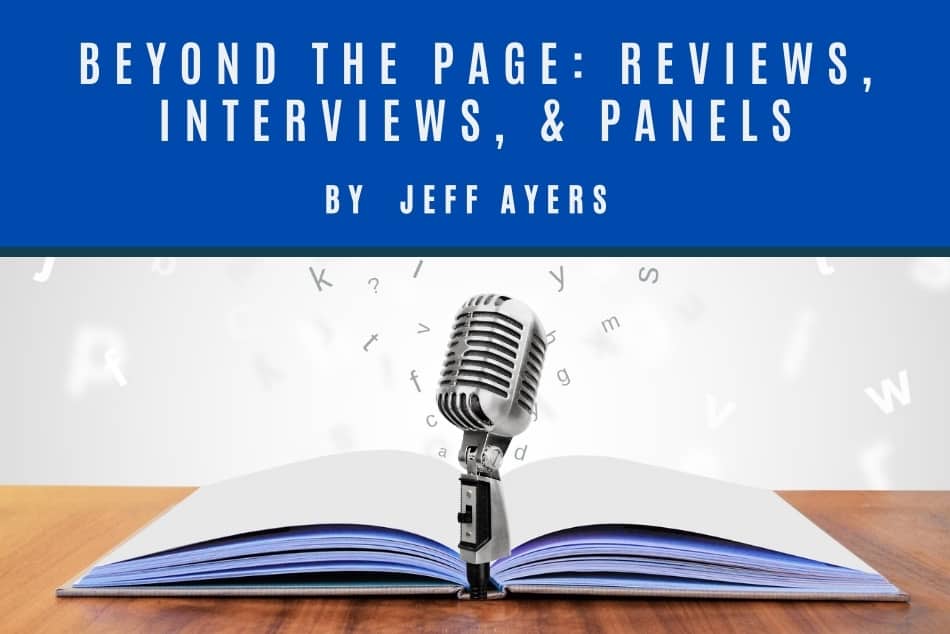Beyond the Page: Reviews, Interviews, & Panels
By Jeff Ayers
Like many of you, I’m an author, but I’m also a book reviewer, radio host, and Co-Executive Director of Thrillerfest (one of the largest annual writers conferences in the world). In other words, I eat, sleep, and breathe books. And having been at this for over twenty years, I’m lucky enough to have a 360-degree perspective on the complex ecosystem that drives book discovery, buzz and awareness during the publication cycle.
With my background writing book reviews for such places as The Associated Press, interviewing some fantastic authors and industry professionals for podcasts and magazines, and moderating panels for events like Thrillerfest and Book Expo America, I’m often asked by authors advice on the “beyond the page” activities that every author needs to understand and pursue. Here is some insight into how I approach each one of them.
Book Reviews:
I’ve been a voracious reader since I was four years old. My love of reading propelled me to want to work in libraries to surround myself with books and share the ones I particularly enjoyed with others. Over 20 years ago, I began reviewing books for Library Journal, which led to writing for other places and magazines like The Associated Press and Booklist. These reviews are a perfect example of doing something you love, but not for the money. I do my best to highlight books that I feel are worth the time and investment, and I review them solely for the love of reading.
Here is how I approach writing a book review:
- Read the entire book. You would be amazed how often I can tell when reading a book review that the reviewer did not read the whole thing.
- When it comes to writing a summary of the book, pull out relevant information to compel the reader of that review to pick up that book immediately. There is no need for secondary characters or story subplot elements. The summary is solely to highlight enough to convey the story and why it is worth the time and investment. The best way to think of this is to look at the summary on a book jacket. It gets right to the point, and you can read that and determine interest.
- I try very hard not to review books that I would not recommend. Writing a negative review should reflect why the elements on the page did not work, in your opinion, and why. Was a particular character too unlikeable? Was this story too much like others in the genre?
- Never spoil a surprise. Don’t give away the ending or that the butler did it.
Interviews:
The first interview I conducted was for Dan Brown, who was coming to Seattle on his tour for The Da Vinci Code. He was super friendly, and his insight and advice propelled me to focus on writing as a career. Since then, I’ve interviewed hundreds of authors and industry professionals in print and audio, and video. I co-host a podcast with John Raab of Suspense Magazine called Beyond the Cover, where we both interview some talented individuals.
Here is how I approach conducting an interview or being interviewed:
- Be a fan. Authors on book tours conduct many interviews to promote their work, and 99% of them are handled the same way- The interviewer is handed press materials and are not familiar with the writer. If you are going to interview someone, read their book!
- If you are being interviewed, make sure to have some fun and insightful stories to tell. Don’t spend the entire time breaking down your book because that gets boring. Listeners or readers of your interview want to gain insight into you and your process. The best podcast interviews make the listener feel like they have stepped into a bar and are sitting on a nearby stool.
Moderating a Panel:
Let me say outright that I’m super shy, and before moderating a panel, I’m a bundle of nerves. Even in the World of Zoom, I’ll pace, and my stomach will churn. But once the session starts, I’m calm. I also love the opportunity to inject some humor if appropriate during the panel. At Thrillerfest a couple of years ago, I had someone walk up to me when I was done moderating and say, “I love it when you moderate. You are funny. When it comes to your personal opinion, though, I don’t give a ****.” All I could come up with as a response was, “Thank you?” The truth is, I do take this as a compliment because the person who took the time to talk to me enjoyed the panel I was moderating.
Here is how I approach moderating a panel:
- You are the driver, and the panelists are your passengers. The main goal is to make sure the panelists and your audience have a good time, and if they go away saying how much they liked it, even better.
- You want to introduce your panelists. You don’t want them to introduce themselves because they can take 3 seconds or five minutes. Some folks like to listen to themselves, and some like to talk way too much about their accomplishments. Introducing them eliminates this potential issue.
- Make sure that each person on the panel gets the same amount of time. If one person starts to dominate, steer another question out to the panel.
- If one person is not answering any questions or not participating (shy), ask them a direct question that is also a softball. That will make them feel comfortable and also show that you value their input because you do.
- Always try to have time for the audience to ask questions and save that to the last few minutes. Doing that right away can cause a bit of chaos. Try to make sure the questions are not directed at just one person, and you can do this by summarizing the question to the panelists. After the audience member asks their question, say something like, “I know that question was directed at X, but I think that applies to everyone.” Something like that.
- The moderator should not be the panel’s focus, so saying something quick and relevant is okay. Giving a personal dissertation and trying to take over the panel to market yourself never works.
- Thank everyone and the audience at the end.
Now you are ready to write a book review, conduct an interview, and moderate a panel. Let me know how it goes on Facebook!
 Jeff Ayers is the author of several works of both fiction and non-fiction. He’s a freelance reviewer for The Associated Press and Library Journal, and he co-hosts a podcast with John Raab of Suspense Magazine. Jeff is the Co-Executive Director of Thrillerfest for the International Thriller Writers.
Jeff Ayers is the author of several works of both fiction and non-fiction. He’s a freelance reviewer for The Associated Press and Library Journal, and he co-hosts a podcast with John Raab of Suspense Magazine. Jeff is the Co-Executive Director of Thrillerfest for the International Thriller Writers.





